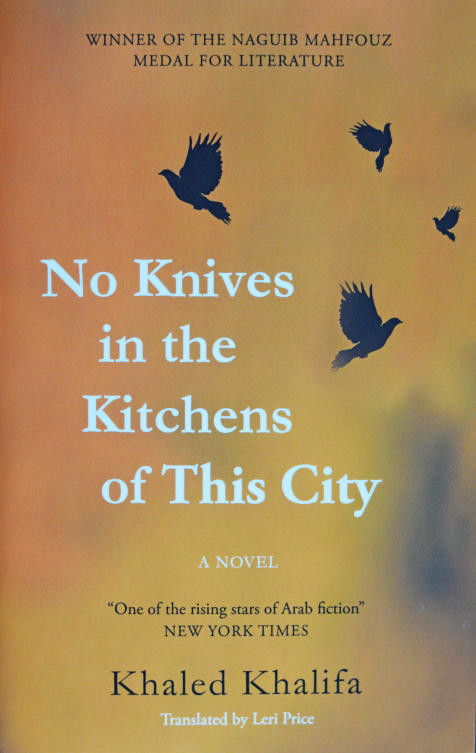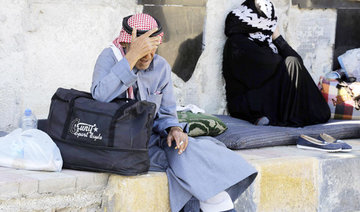“No Knives in the Kitchens of This City” by Khaled Khalifa is a heartbreaking story of a Syrian family navigating Aleppo as politics, the president and loyalties ravage the city. Khalifa, who was born in Aleppo, is the author of four novels and the editor of the literary magazine Alif. He does not hold back in his descriptions of how Aleppo, from the 1960s to the 2000s, has fallen around families who have no choice but to live through the disasters. Translated into English by Leri Price in 2016, the novel won the Naguib Mahfouz Medal for Literature in 2013 and was shortlisted for the International Prize for Arabic Fiction in 2014.
Khalifa’s story is told and retold by his characters who long for the past when life was not as difficult. Following one family, the novel reveals the story of a mother who died “ten years too late,” according to her son. Her family must find their way through the streets of Aleppo amid its dwindling lettuce fields, overcrowded streets and loyal party members looking for allegiances and punishing those who do not praise the leader as they do.
Not a loyalist and marred by misfortune, the mother must make do with her life, even if her son’s birthday is marked by the Ba’athist coup of 1963, an event in history she despises which makes her feel as if “her life was a collection of mistakes that could never be resolved.” Her life deteriorates slowly after she, a dreamy woman with dark eyes, marries for love and eventually is left by her husband for another woman. She is abandoned by her own family, except for her brother known as Uncle Nazir, and forced to continue life as a school teacher with three children and her shame. But as her own life takes a turn down a twisted and unplanned path, so does Syria’s and its beloved city of Aleppo.
The regime’s takeover is swift — it forcefully grasps the country and its people. Neither their lives nor their surroundings are in their hands anymore.
From the narrator’s grandfather Jalal Al-Nabulsi, who is “proud of being from a family which had been in Aleppo for a thousand years,” one of the first employees of the Railway Institute and one of the only witnesses to the inception of the Syrian railway system, to a mother who “perpetually extolled the past and conjured it up with delight as a kind of revenge for her humble life,” to Sawsan who at first is irrepressible and then “immersed herself into radicalism and fatwas day after day,” Khalifa’s book weaves through the generations of the family.
His book depicts a fading picture, one that was once vibrant and full of life. He moves from Aleppo to Midan Akbas and back, through dusty roads and the Cinema Opera where childhoods were filled with Egyptian and Bollywood movies “with happy endings.” He tells the stories of women who leaf through trinkets and forgotten wares in the Bab Al-Nasr second-hand shop and bring them back to life to feel a semblance of magic. As “walking in the streets had become a terrifying experience” and violence and temperamental political attitudes take hold, his sentences and metaphors captivate the reader and will immerse you in Syria.
Time and age weigh heavily on the pages as a collapsing life and city add to the darkness that begins to take hold of Aleppo. Tales of love and dreams, of faded images that serve as motivation to move forward, are rampant. Mother manages to move on when she believes she is “divorced, not abandoned,” but for others, it is a little more difficult to convince themselves and find inspiration to move forward.
Khalifa’s book is reminiscent of Turkish novelist Sabahattin Ali’s style in the manner in which he hints that it is life that shapes people and not people who shape life. Like Ali, Khalifa’s story is about how circumstance decides the path one’s life will take. His love for the city and for Syria is ever-present in his every description and metaphor. He can enchant the reader with details of the city and its history, its buildings and the “rising fumes of death and the fear present in every street and on the face of every man and woman hurrying home in the early evening.”
But amid the fear are pockets of people who cling to music and passionate love, who attempt to keep hate away and defy the powers that be. Within the dark alleyways and molding walls, art, poetry and theater flourish. Sometimes, the characters live in their own momentary bubbles and are blind to the outside world in their pursuit of self-discovery and purpose. But ultimately, they are forced back to face the world and themselves.
In the darkness are bouts of light, but it is neither bright nor long-lasting and that is the truth and reality of Syria. Despite this, the resilience of Khalifa’s characters in their journeys is hopeful. This book paints horrifying pictures as beautifully as it does optimistic ones. Khalifa’s writing is whole, his sentences memorable, his characters strong and fearless. His strength lies in his ability to reveal harsh truths and ugly realities beautifully, to bring through the seas of hate, love and resilience.
In the end, when life hangs on by a thread, there is hope amid the pessimism as “Aleppo still embodied a dream of wealth and urbanity even though three-fourths of it had turned into slums unfit for human habitation.”


Book Review: A Syrian family stands tall as Aleppo falls
Book Review: A Syrian family stands tall as Aleppo falls

What We Are Reading Today: Corporate Crime and Punishment

- Many critics of globalization and corporate impunity cheer this turn toward accountability
Author: Cornelia Wall
Over the past decade, many of the world’s biggest companies have found themselves embroiled in legal disputes over corruption, fraud, environmental damage, tax evasion, or sanction violations.
Corporations including Volkswagen, BP, and Credit Suisse have paid record-breaking fines.
Many critics of globalization and corporate impunity cheer this turn toward accountability. Others, however, question American dominance in legal battles that seem to impose domestic legal norms beyond national boundaries.
In this book, Cornelia Woll examines the politics of American corporate criminal law’s extraterritorial reach.
© 2026 SAUDI RESEARCH & PUBLISHING COMPANY, All Rights Reserved And subject to Terms of Use Agreement.














